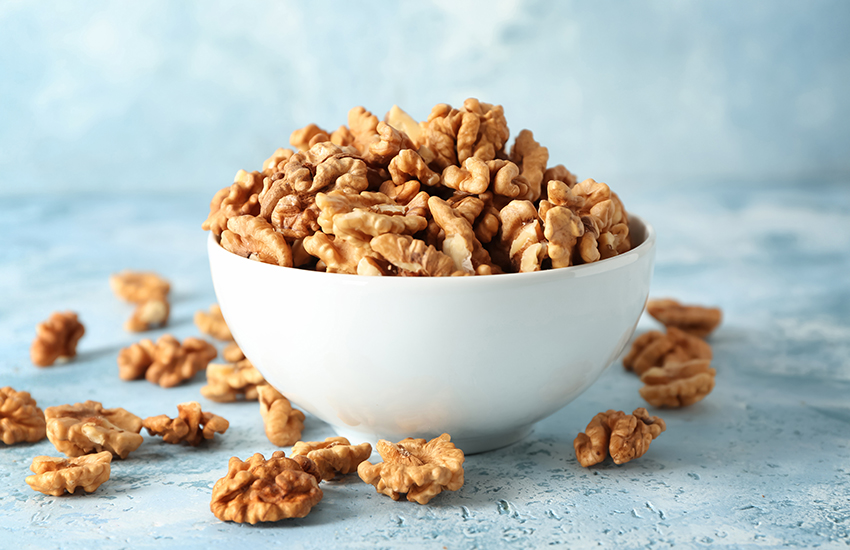Why our customers prefer Blue Cross
- Option of getting insured without a medical exam
- Excellent rates
- Pioneer in the field of health insurance with over 80 years of experience
- Friendly service from experienced agents who can answer your questions and assist you when needed
- Coverage that can be customized to meet your specific needs
- Discounts and savings with our one-of-a-kind Blue Advantage program

Best and worst foods for arthritis sufferers
Published on: December 8, 2020
When it comes to treating arthritis, some think of medication or physical treatments to alleviate the effects. But did you know that what you eat can also have an impact on these symptoms?
What is arthritis?
Arthritis is a chronic and sadly incurable disease that refers to a group of more than 100 conditions affecting the joints and other tissues. According to the Arthritis Society, one in five Canadians has arthritis.
There are two broad categories of arthritis:
- Osteoarthritis: This disease causes damage to cartilage – the tissue that covers and protects bones - and the bones underneath. It is the most common form of arthritis and it is estimated that one in four Canadians will have it by 2035. Several factors can increase the risk of developing osteoarthritis, such as age, gender, family history, being overweight, jobs that put pressure on the joints, previous injuries or muscle weakness.
- Inflammatory arthritis: This type of arthritis includes different diseases - most of them autoimmune - causing inflammation that can lead to irreversible damage to the joints. Lupus, gout, rheumatoid arthritis, psoriatic arthritis and juvenile idiopathic arthritis are examples of inflammatory arthritis.
If left untreated, arthritis can affect the quality of life of anyone who has it. In fact, arthritis that is not properly managed can cause joint pain at rest or during movement, fatigue, stiffness and reduced mobility.
Tips for people with arthritis
While there is no treatment that can cure arthritis, eating healthy may lessen the effects.
Depending on the type of arthritis you have, different foods can help reduce or prevent inflammation, strengthen your immune system, increase your energy level, decrease stress and keep you in shape to protect your joints.
Here are some examples of foods recommended by the Arthritis Society and the Arthritis Foundation®:
- Foods rich in omega-3 fatty acids, such as:
- Fish (herring, mackerel, sardines, salmon, tuna, trout)
- Linseed, canola and walnut oil
- Nuts and seeds (flax seeds, walnuts)
- Foods fortified with omega-3 (eggs, milk)
- Foods that contain monounsaturated fat, such as:
- Olive and canola oil
- Certain nuts, such as cashews or almonds
- Avocados
- Foods rich in iron, especially if you have anemia (a common condition in people with arthritis), such as:
- Spinach
- Legumes
- Dried fruits
- Cherries and some field fruits, such as raspberries, blueberries and blackberries, whose anthocyanosides may have an anti-inflammatory effect especially beneficial for people with gout
- Low-fat dairy products, which are packed with vitamin D and calcium, nutrients that are beneficial for bone health and can help people with osteoarthritis
- Lean proteins - which help strengthen the immune system - such as:
- Chicken
- Seafood
- Legumes
- Nuts and seeds
- Fruits and vegetables rich in vitamin C, such as:
- Citrus fruits
- Broccoli (which also contains a good amount of vitamins K and B9)
- Strawberries
Studies have also shown that the DASH diet - designed to help lower or control high blood pressure - and the Mediterranean diet - rich in plant products and healthy fats - may lessen the effects of arthritis because they are made up of foods that help reduce inflammation.
The Arthritis Society also advises people with arthritis to follow Health Canada’s recommendations by referring to Canada’s Food Guide, which places special emphasis on the amount of fresh fruits and vegetables on the plate.
What to keep off your plate
Certain foods can worsen the effects of arthritis by causing inflammation or causing other health problems that could impact your symptoms.
If you have arthritis, the following are some examples of foods that you should eat in small quantities or even avoid altogether:
- Added sugars
- Red meats or processed meats
- Gluten, but only if you have celiac disease or gluten sensitivity
- Ultra-processed foods, these often contain significant amounts of ingredients that can cause inflammation
- Alcohol
- Foods that have a high sodium level
- Saturated fats (found in fatty meats and some oils like coconut oil) and trans fats (often found in fried and processed foods)
Foods that can worsen the effects of arthritis can differ from person to person. Some people, for example, might be sensitive to dairy products, while others won’t notice any difference after consuming them. Try to pay attention to your symptoms and what you are eating to determine which foods may be having adverse effects on your health.
The Arthritis Society has developed a Food and Mood Tracker to help you determine how your lifestyle affects your well-being and symptoms.
Talk to a nutrition expert
A recognized nutrition expert will be very useful in establishing and maintaining good eating habits. Actually, different factors could be taken into account in the development of a nutritional plan adapted to your needs; this is why it is important to have the support of a specialist who is a member of the Ordre professionnel des diététistes du Québec.
By combining a healthy, balanced diet with medication, physical activity and other treatments prescribed by your doctor, you can live better with arthritis.
Find out more
Training module Eating well, Arthritis Society
Your good food guide, Arthritis Society
12 best foods for arthritis, Arthritis Foundation
8 Foods and Beverages to Avoid with Arthritis, Healthline
Article updated December 8, 2020.